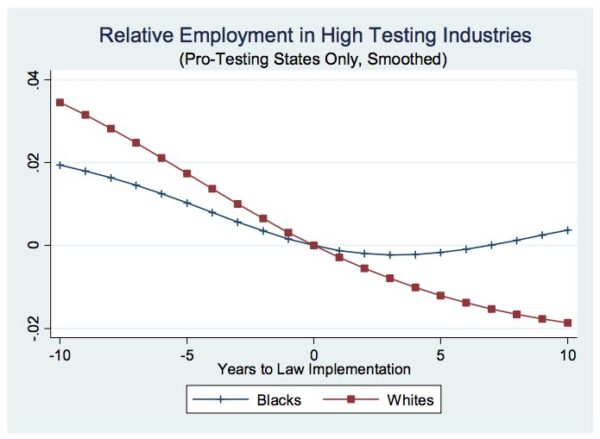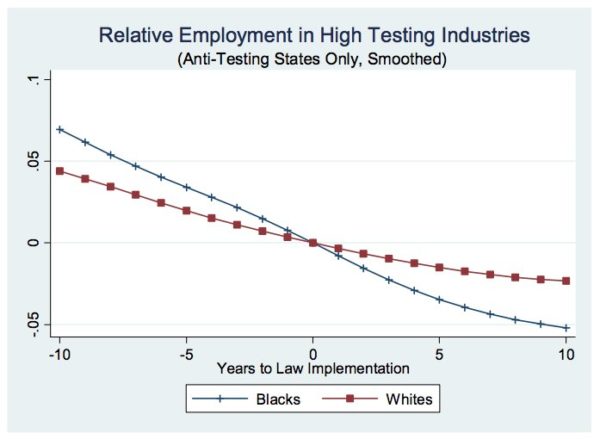
The study’s author, University of Notre Dame economics professor Abigail Wozniak, looked at how hiring practices differ between states with laws that incentivize or encourage drug testing and states with laws that limit or do not require such testing. She found that pro-testing legislation has a “large” and positive effect on Black employment and wages, especially among low-skilled Black men.
As the chart below shows, enacting pro-drug testing laws improves the share of Blacks working in what Wozniak terms high-testing industries, while leading to a decrease in the share of whites working in such industries.
In states that enact anti-testing laws, the opposite proves true: Limiting drug testing appears to hurt Black applicants much more than it hurts whites.
The findings imply that companies in states without pro-testing laws are, subconsciously or not, assuming Black job applicants are guilty of using illegal drugs until proven innocent. In Wozniak’s opinion, drug testing can therefore help “non-using Blacks to prove their status to employers, even as the drug war linked Blacks with drug use in the popular imagination.”
“A common assumption is that the rise of drug testing must have had negative consequences for Black employment,” Wozniak writes. “However, contrary to what one might expect, the rise of employer drug testing may have benefited African-Americans.”
But in a phone interview with The Huffington Post, Wozniak cautioned against interpreting the study as proof that employers are explicitly discriminating against Black applicants.
“The results don’t look like what you would call typical old-school racism,” Wozniak told HuffPost. “The research in the paper suggests that the bias is coming in more subtle ways.”
Read the full story at huffingtonpost.com




